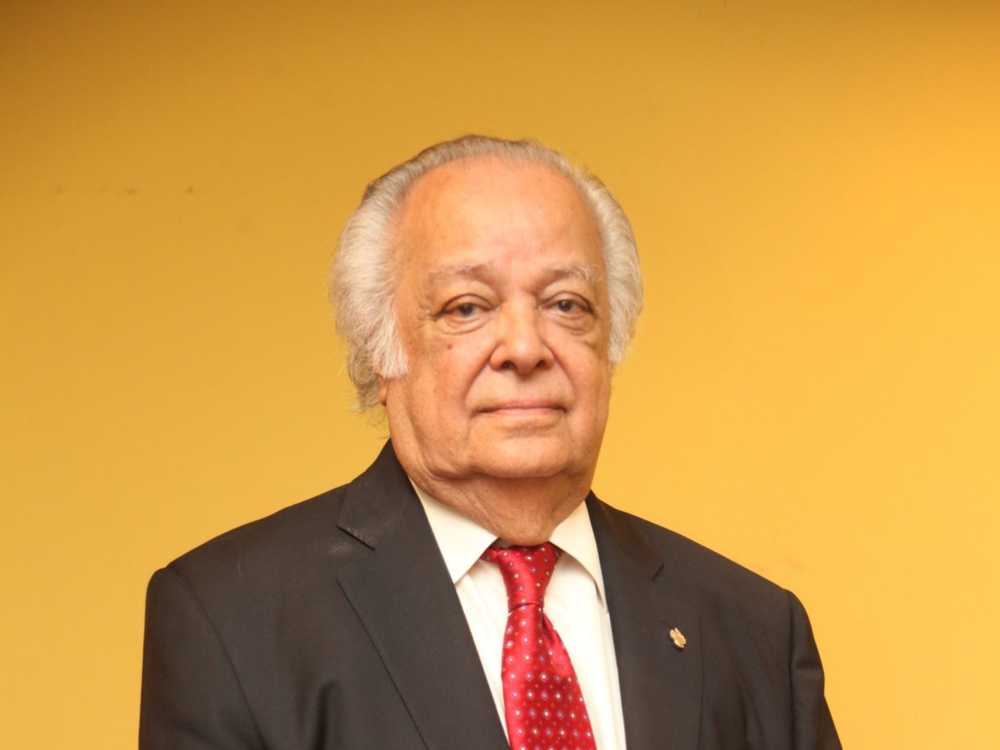The Caribbean and the world have lost a remarkable leader, diplomat, and advocate for small nations with the passing of Sir Shridath Surendranath Ramphal. Born on October 3, 1928, in New Amsterdam, British Guiana (now Guyana), he rose to become one of the Caribbean’s most distinguished global statesmen. His career, marked by service to the Caribbean, the Commonwealth, and the international community, spanned more than five decades, leaving an indelible impact on global diplomacy and development.
As the Caribbean Export Development Agency reflects on its Memorandum of Understanding with the Shridath Ramphal Centre at the University of the West Indies (UWI), this moment offers an opportunity to honor the man behind the name—a figure whose life’s work focused on justice, equality, and advancing the interests of small and developing nations on the world stage.
Regional Leadership: Champion of Caribbean Integration
In the Caribbean, he is revered for his role in fostering regional integration. His early involvement in the creation of the Caribbean Free Trade Area (CARIFTA) laid the groundwork for what would later become the Caribbean Community (CARICOM). As Guyana’s Foreign Minister from 1972 to 1975, he was instrumental in promoting economic cooperation within the region, encouraging the development of shared institutions that would support Caribbean self-reliance.
His visionary leadership also extended to his advocacy for Caribbean unity on the global stage. He believed that the Caribbean’s collective voice could carry weight in international forums, giving small island nations a seat at the table on issues such as trade, development, and climate change.
Global Statesman: Commonwealth Leadership and Beyond
It was in the international arena, however, where Shridath Ramphal became a household name. As the second Secretary-General of the Commonwealth of Nations, serving from 1975 to 1990, he was a tireless advocate for the interests of the developing world. Under his stewardship, the Commonwealth became a vital platform for promoting social justice, environmental sustainability, and the economic rights of small nations.
Shridath’s leadership of the Commonwealth came at a critical time. The 1970s and 1980s were marked by intense geopolitical tensions, apartheid in South Africa, and growing global economic inequality. He played a pivotal role in the Commonwealth’s opposition to apartheid, standing firm against racial injustice and advocating for economic sanctions against the South African regime. His moral clarity and diplomatic skill helped to strengthen the global movement for human rights and justice.
The Shridath Ramphal Centre: A Lasting Legacy
In recognition of his contributions to Caribbean integration and global diplomacy, the University of the West Indies established the Shridath Ramphal Centre for International Trade Law, Policy, and Services. The Centre, based at the Cave Hill Campus in Barbados, is a tribute to his lifelong commitment to promoting the interests of the Caribbean in global trade negotiations.
The Centre’s work, which includes research, policy analysis, and capacity building, reflects Sir Shridath’s belief that the Caribbean must be proactive and united in asserting its rights in the international system. Through its partnership with organizations like the Caribbean Export Development Agency, the Centre continues to champion the cause of economic empowerment and sustainable development for the region.
A Life of Service
Sir Shridath Ramphal’s passing marks the end of an era for the Caribbean and the international community. He leaves behind a legacy of principled diplomacy, unyielding advocacy for justice, and a vision of a fairer, more equitable world. As we honor his life and contributions, we are reminded of the power of leadership that is guided by integrity, intellect, and a commitment to the common good.
For the Caribbean, Shridath Ramphal will always be remembered as a statesman who understood the unique challenges facing small nations and dedicated his life to ensuring that these voices were heard. His influence will continue to shape Caribbean diplomacy and international relations for generations to come.
